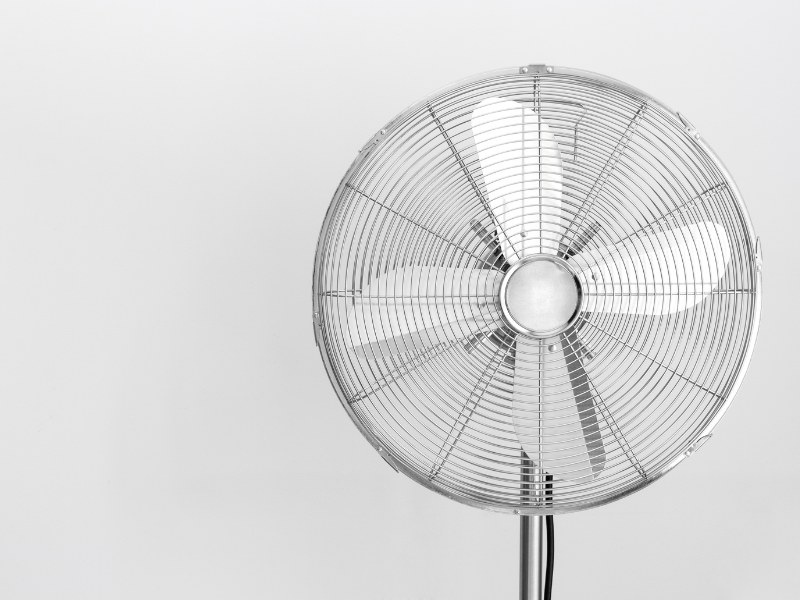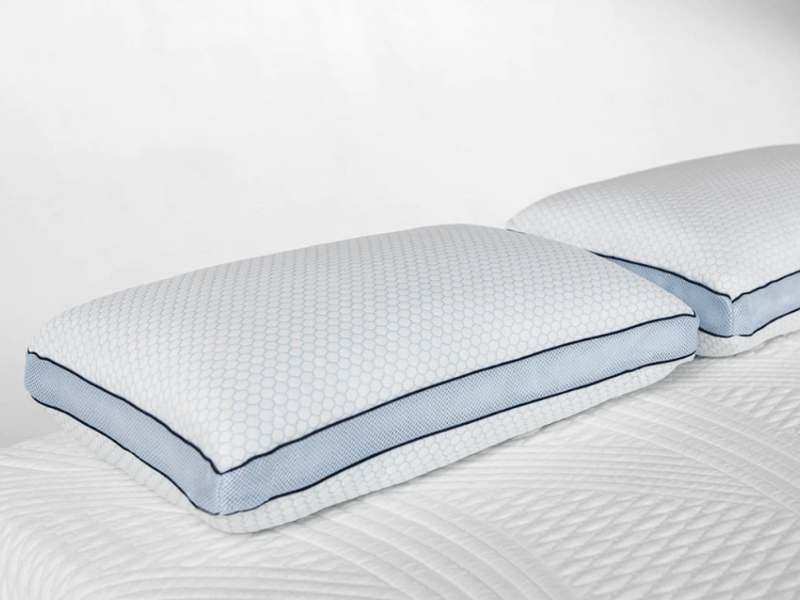Do you struggle with intrusive, ringing sounds in your ears keeping you awake at night? That's a condition known as tinnitus, and it can seriously disrupt your sleep quality. In this article, we delve into the relationship between tinnitus and sleep disturbances, offering insights on how to manage and improve rest despite these challenges.
So let's turn down the volume on tinnitus—read on for a better night’s slumber!
Understanding Tinnitus and Sleep Quality
Tinnitus can have a significant impact on sleep quality, often causing sleep disturbances and leading to conditions like anxiety and insomnia.
Relationship between tinnitus and sleep disturbance
Tinnitus can be a real sleep blocker. This ear condition makes people hear sounds when there are none. It might sound like ringing, humming, or buzzing. For some folks, tinnitus is mild and does not disrupt their daily life much.
But others have it so bad that they lose sleep over it. Losing sleep because of tinnitus can lead to other problems too, like feeling tired all day long or getting sick more often. Tinnitus and sleep disturbance are closely linked and understanding this link can help in managing the condition better.
Impact on sleep quality
Tinnitus injures good sleep. A loud ringing in the ears keeps people awake at night. About half of those with tinnitus have sleep problems because of it. It's hard to fall asleep with a constant noise in your head.
Disturbing sounds stop your brain from going into deep, restful sleep. Sleep issues bring on other problems too, like stress and sadness. If you want to beat sleep issues caused by tinnitus, know that it can be done! But how? The answer may lie somewhere in your brain activity when you are trying to get some shut-eye.
Connection to anxiety and insomnia
Tinnitus and sleep problems often go hand in hand. The loud, steady noise can make it hard to fall asleep at night. This lack of good rest can lead to feeling tired all the time. As a result, people with tinnitus may feel more stressed out or anxious.
This stress and anxiety can then make the tinnitus worse. It's like a bad loop that keeps going round and round. Tinnitus causes restless sleep which leads to emotional distress and anxiety disorders. Then these feelings cause more sleep disturbances. Good quality sleep is very important for everyone, especially those dealing with this condition.
The Vicious Cycle of Tinnitus, Anxiety, and Sleep Issues
Tinnitus and anxiety are closely interconnected, with both conditions exacerbating each other, leading to sleep disturbances and a vicious cycle of worsening symptoms.
How tinnitus and anxiety feed off each other
Tinnitus and anxiety have a complicated relationship. When stress and anxiety levels are high, they can intensify the ringing in your ears caused by tinnitus. This increased ringing can then cause more stress and anxiety, creating a vicious cycle.
It's like a never-ending loop where tinnitus symptoms worsen due to anxiety, and anxiety is fueled by the worsening symptoms of tinnitus. The two conditions are interconnected, with each one exacerbating the other. As a result, both tinnitus and anxiety can lead to sleep problems, making it difficult to get restful sleep at night. Unfortunately, these sleep problems can further aggravate both tinnitus symptoms and feelings of anxiety during the day.
How lack of sleep can worsen tinnitus
Lack of sleep can make tinnitus worse. When people with tinnitus don't get enough sleep, their symptoms can become more intense and bothersome. Research shows that when we don't get restful sleep, our brain becomes more sensitive to sounds, including the ringing or buzzing sound of tinnitus.
This means that even a small increase in tinnitus volume or intensity can feel much louder and more distressing when we're tired. Not getting enough sleep also affects our overall well-being. It can increase anxiety levels and contribute to a vicious cycle of worry and heightened awareness of tinnitus. This cycle makes it harder to relax and fall asleep, leading to even less restorative sleep and further worsening of both anxiety and tinnitus symptoms.
So people with tinnitus need to prioritize quality sleep as part of managing their condition effectively.
Coping with Sleep Problems Caused by Tinnitus
To improve sleep quality, individuals with tinnitus can try practical tips such as establishing a consistent bedtime routine, creating a calm and comfortable sleep environment, using sound therapy or relaxation techniques, and considering the role of sleeping position in reducing discomfort.
Practical tips for improving sleep
Improving sleep when you have tinnitus is possible. Here are some practical tips that can help:
- Establish a consistent sleep schedule: Try to go to bed and wake up at the same time every day to regulate your body's internal clock and improve sleep quality.
- Create a bedtime routine: Engage in relaxing activities before bed, such as reading a book or taking a warm bath, to signal your body that it's time to wind down and prepare for sleep.
- Avoid stimulating substances: Limit your intake of caffeine, nicotine, and alcohol, especially close to bedtime, as they can interfere with your ability to fall asleep and stay asleep.
- Make your bedroom conducive to sleep: Create a comfortable and quiet environment by using earplugs or a white noise machine to mask tinnitus sounds. Ensure that your mattress is supportive and comfortable for better rest.
- Manage stress and anxiety: Practice stress-reducing techniques like deep breathing exercises, meditation, or yoga throughout the day to decrease anxiety levels that may worsen tinnitus and disrupt sleep.
- Write down worrisome thoughts: Before going to bed, jot down any concerns or thoughts in a journal so you can clear your mind and reduce racing thoughts that may keep you awake.
- Consider sound therapy: Use soothing sounds like nature sounds or calming music during bedtime to drown out tinnitus noises and promote relaxation for better sleep.
Role of sound therapy and relaxation techniques
Sound therapy and relaxation techniques can help manage sleep problems caused by tinnitus. Here are some tips to consider:
- Use calming sounds: Listening to calming sounds, such as white noise or nature sounds, can help mask the ringing in your ears and promote better sleep.
- Try guided meditation: Practicing guided meditation before bed can help relax your mind and body, making it easier to fall asleep and stay asleep.
- Deep breathing exercises: Deep breathing exercises can help reduce stress and anxiety, which are often associated with tinnitus. Take slow, deep breaths and focus on your breath to relax your body.
- Progressive muscle relaxation: Progressive muscle relaxation involves tensing and then releasing different muscle groups in your body to promote relaxation. This technique can help alleviate tension and promote better sleep.
- Establish a bedtime routine: Creating a consistent bedtime routine can signal to your body that it's time to relax and prepare for sleep. Include activities that help you unwind, such as reading a book or taking a warm bath.
Latest Research on Tinnitus and Sleep
Researchers have made significant advancements in understanding the relationship between tinnitus and sleep, identifying tinnitus-related brain activity during sleep, and highlighting the crucial role of restorative sleep in managing chronic tinnitus.
Identifying tinnitus-related brain activity during sleep
During sleep, tinnitus-related brain activity can persist and interfere with important processes like slow wave activity (SWA). This can lead to a disruption in the normal sleep cycle.
Researchers are studying ways to identify this specific brain activity during sleep by recording brain activity. Understanding this connection between tinnitus and sleep could potentially help develop new treatments for managing tinnitus and improving overall sleep quality.
By focusing on identifying and addressing abnormal brain activity during sleep, researchers hope to find effective solutions for people experiencing both tinnitus and sleep disturbances.
The role of sleep in tinnitus
Sleep plays a crucial role in tinnitus. Recent research has shown that when we sleep, our brain enters a restorative state where it repairs and rejuvenates itself. However, for people with tinnitus, this restful sleep can be disrupted.
Tinnitus-related activity in the brain during sleep can prevent the brain from entering this restorative state, leading to more severe symptoms of tinnitus and poorer sleep quality.
Studies have found that persistent tinnitus-related activity during sleep interferes with slow-wave activity (SWA) in affected areas of the brain, causing local wakefulness instead of deep sleep.
This lack of restorative sleep can result in increased daytime fatigue and decreased alertness. Additionally, poor sleep quality can exacerbate anxiety levels and worsen tinnitus symptoms overall.
Conclusion: Managing Tinnitus for Better Sleep
To manage tinnitus for better sleep, it's important to understand the connection between tinnitus and sleep disturbances. Tinnitus can disrupt sleep quality and lead to anxiety and insomnia.
By implementing practical tips for improving sleep, such as sound therapy and relaxation techniques, individuals with tinnitus can find relief and achieve better sleep. Ongoing research is shedding light on the relationship between tinnitus and sleep, offering hope for effective treatments in the future.
FAQs
1. What is tinnitus and how does it affect sleep?
Tinnitus refers to a ringing or buzzing sound in the ears. It can make it difficult to fall asleep or stay asleep, leading to poor-quality sleep.
2. Can tinnitus be cured so that it no longer affects sleep?
There is currently no known cure for tinnitus, but there are management strategies that can help reduce its impact on sleep and daily life.
3. How can I improve my sleep if I have tinnitus?
Creating a soothing bedtime routine, using white noise or relaxing sounds, and managing stress levels can help improve sleep with tinnitus.
4. Are there any medications specifically for treating tinnitus-related sleeping difficulties?
While there are no medications approved specifically for this purpose, some medications may help manage symptoms like anxiety or depression associated with tinnitus, which could indirectly improve sleep.
5. When should I seek medical help for my tinnitus-related sleeping problems?
If your tinnitus significantly disrupts your ability to get adequate restful sleep, causes distress, or affects your mental well-being, it's important to consult with a healthcare professional specialized in audiology or otolaryngology (ear-nose-throat) as they may recommend specific treatments and therapies tailored to you.






















